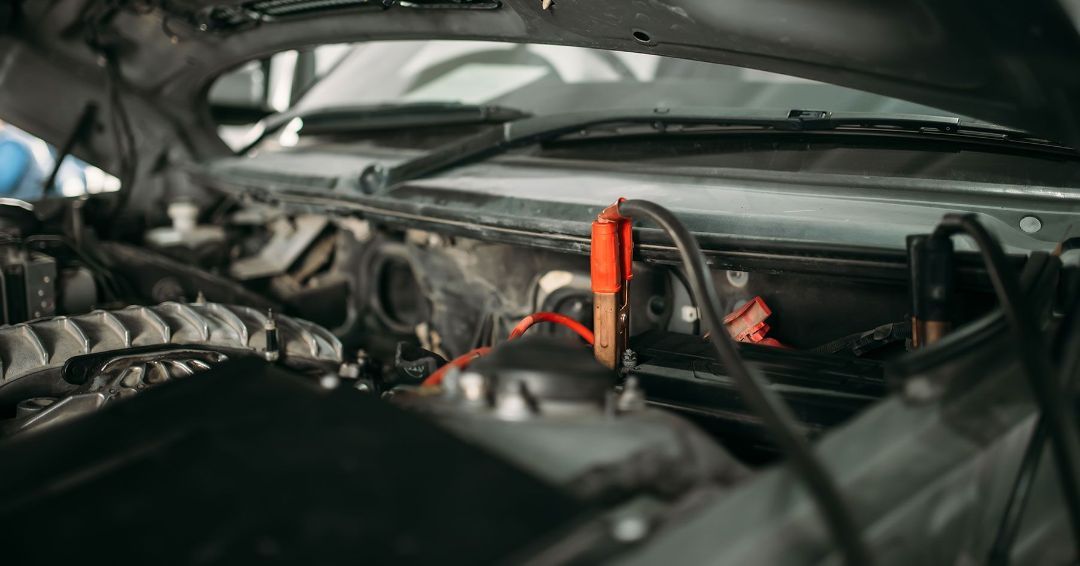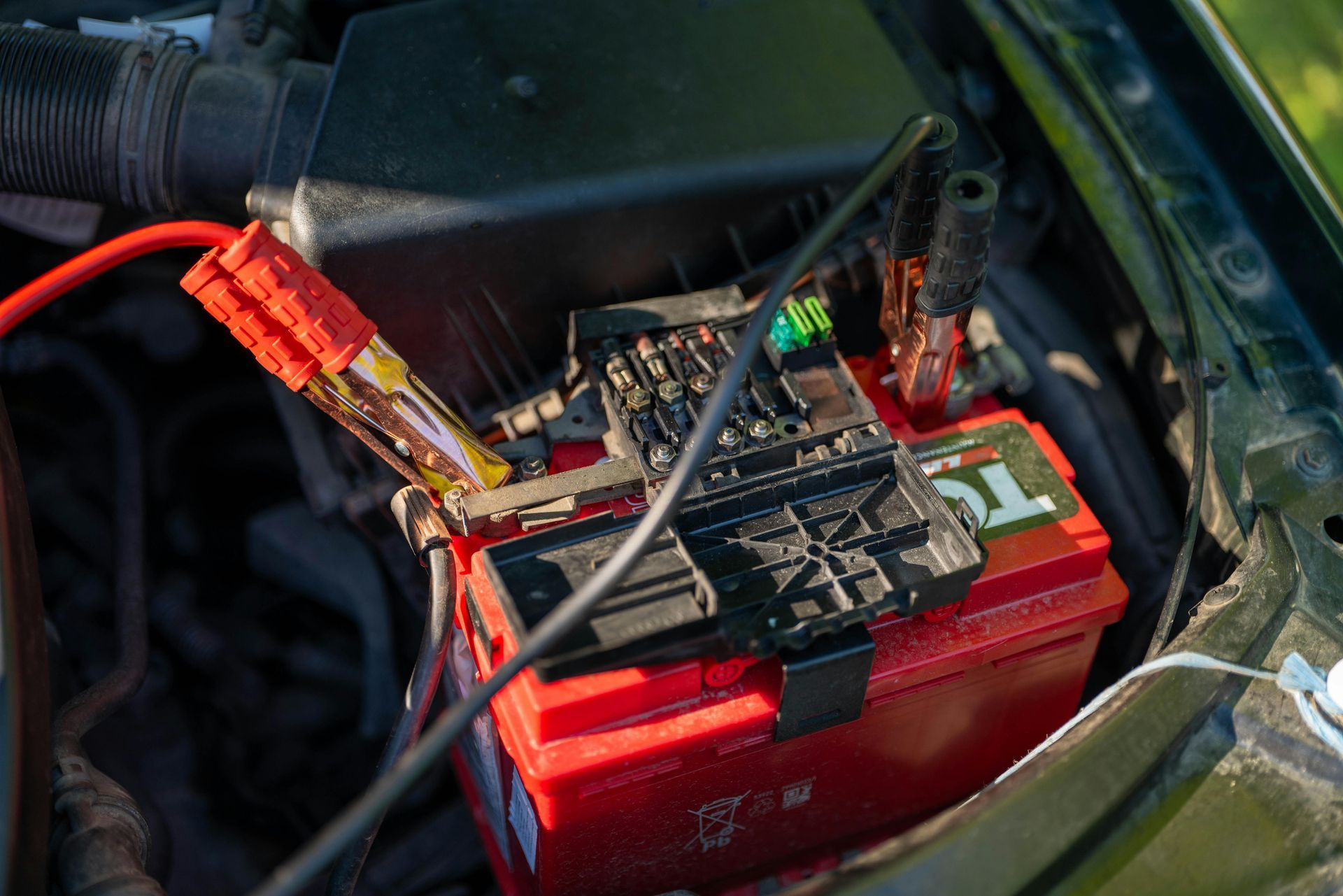How to Know When it is Time to Replace Your Car Battery
Auto Shops Located in: Chapel Hill, Durham, Taleigh, Apex, and Cary North Carolina

4 Signs It Is Almost Time For a New Battery
Have you ever been in a hurry to get to work or school on time only to find that car won’t start? While jump-starting your car may get you to work, it is best to get your battery replaced before any issues can arise. This is why it is helpful to know when your battery is on its way out. Here are four signs that you are almost due for a new car battery, brought to you by the mechanics at Chapel Hill Tire.
1) Your Battery Struggles to Combat Seasonal Challenges
As the North Carolina heat begins picking up, you might start to notice your battery reacting adversely to these changes. This occurs when the heat begins evaporating the water in your battery’s internal fluids. This evaporation also can cause internal battery corrosion.
In the winter, your battery’s chemical reaction slows down—draining the life out of our battery—and your vehicle requires more power to start due to slow-moving engine oil. Newer batteries can manage harsh weather conditions with ease, but a battery near the end of its lifespan will begin to struggle in extreme climates. Here is our guide to getting your car moving during the cold weather so you can make it to a mechanic for a replacement.
2) Your Car Has Been Sitting For Too Long
If you leave your vehicle for an extended trip out of town, it could have a dead battery when you return. Your battery is heavily impacted by your driving patterns. While you might think that driving frequently negatively impacts the health of your battery, the opposite is often true. Your battery recharges while you drive, which means leaving your vehicle sitting for an extended period of time could deplete its charge. If you have chosen to quarantine out of town and left your vehicle sitting idle, consider asking a roommate, friend, or neighbor back home to make sure it gets a spin around the block every once in a while to protect your battery.
3) Your Vehicle Struggles When Starting
Have you noticed your engine taking longer to crank than it normally would? Perhaps the lights begin to flicker or you hear an unusual noise when you turn the key? These are all indicators of imminent battery failure. Before your car has a chance to fail you, consider bringing your vehicle to an expert for a starting system inspection or a battery replacement.
4) Your Battery Is Older and Triggers a Dashboard Light
Wouldn’t it be easier to tell when you needed a battery replacement if your car gave you a sign? Thankfully, most cars do just that. Your dashboard battery light is designed to illuminate when your vehicle senses a battery or starting issue. When all else fails, you can also rely on the age of your battery to provide an estimate of when it may need to be replaced. The average car battery will last three years, though this could be affected by your battery brand, vehicle type, area’s climate, car care, and driving patterns.
Alternative Starting and Battery Problems
Are you experiencing starting issues after getting a battery replacement? Is your new battery dying prematurely? Are you having a hard time safely jump-starting your car? These are signs that your issue exists beyond a dead battery:
- Alternator Issues: Your car’s alternator is responsible for recharging your battery while you drive. If your battery dies soon after the replacement, you could have an alternator issue.
- Bad Battery: Alternatively, a battery that dies soon after replacement could be a sign of a faulty battery. While this is rare, it is not unheard of. Thankfully, you will likely be covered by a warranty if you visit an expert mechanic.
- Drained Battery: Are you keeping your battery protected? Leaving lights on or chargers plugged in could be killing your car battery.
- Starter Problems: As the name suggests, your car’s starter is responsible for starting your vehicle. If there is an issue with your starter, your vehicle will not crank up, even with a full battery.
Starting tests and vehicle diagnostics can be completed to detect the source of your vehicle issue. A mechanic will then work with you to develop a repair plan that will get your car working again.
Chapel Hill Tire Battery Replacement and Care
If you are experiencing battery issues, contact the experts at Chapel Hill Tire. Our shops are open to serve the needs of Triangle-area residents, and our mechanics are completing curbside service and free pickup and delivery to protect the health of our customers and our employees. Additionally, if you are worried about driving your vehicle with a compromised battery, our mechanics will come to you! Make your appointment here online with Chapel Hill Tire to get the new battery you need in Raleigh, Apex, Chapel Hill, Cary, Durham, or Carrboro today!















